The key to more productivity and less stress is not time management. It is energy management.
The world’s best productivity strategies don’t work if you don’t have the energy to put them into action – and stick with them.
The reality of time management – and why it doesn’t work
Time is relentless and continuous. We can’t speed it up, slow it down, or have a do-over. Yet here we are playing a game of beat-the-clock we can’t win.
What’s worse is that so many professions (like lawyers) are built on the notion of trading time for money – a losing proposition to be sure.
If you only make more money by working more then you don’t really have a sustainable business. You’re just setting yourself up for burnout and exhaustion.
So when we say “time management” we are really talking about making better choices about how we use our time.
And that’s good because you can be in control of your time choices.
Manage energy first …
When you focus on managing your energy you will make better choices about mostly everything – including how you invest your time. You will also feel more in control, and less stressed out.
Thinking about energy management in four buckets really helped me with my energy management:
– Physical energy is about your health and fitness. It provides the power for everything, and it is a finite resource. Elements include the things you may take for granted – or skimp on, like sleep, exercise, nutrition, and periods of rest and recovery.
– Mental energy is about your focus and attention. It is the element that helps you avoid distractions, solve problems and do the intellectual work of being a leader and a professional.
– Emotional energy describes the quality of your interactions with the world, and yourself. It is about emotions and attitudes around the work you do. Negative energy depletes your physical and mental energy faster and makes it harder to recharge. The opposite is also true.
– Spiritual energy provides a perspective based on your purpose and position in the world – and your need for contribution and meaning. When you are working in alignment with your purpose and mission this can feed into the other energy types. The opposite is also true.
Here are some top strategies that I teach (and use) to create, protect, and focus physical, mental, and emotional energy for lawyers and business professionals.
Jettison the Energy Busters
Energy busters are the people, situations, habits, and activities that consume energy without adding value.
Energy busters are everywhere and they can be hard to identify – like the apps in the background are forever draining your cell phone battery. If you look closely you’ll start to see them.
They are distractions from your phone, texting, social media, internet surfing, or the pile of stuff around your desk that you finally decide to organize, or the dog that needs walking.
You’ll also find the energy vampires, or for vintage SNL fans, Debbie Downers.
Once you identify the energy busters pick one that has the most negative impact on your physical, emotional, or mental energy. Then take steps to reduce or eliminate it. One at a time.
Now, you may find that your clients, co-workers, or the type of work you are practicing all occupy the top of your energy buster’s list. It happens.
And there is often a fix that is less extreme than firing your clients, quitting your practice, and jetting off to Bora Bora (as nice as that may sound). And yes, we can help with that.
Accumulate Energy Boosters …
Identify the things in your life and your work that give you energy and be intentional about fostering those activities and relationships.
Our energy follows our focus. I am not suggesting that you only focus on positive things – because that’s not realistic. However, I find that you can get an energy boost from a negative situation when you focus on what you can learn and do differently that is within your control.
The key is focusing on what you control – and while you can’t control the world around you, you can control how you respond (rather than react) to it.
Try this out for a week.
Be intentional every morning about managing your energy.
Something physical. Something mental. And something emotional.
Check in with yourself several times throughout the day and at the end of the day. You won’t be great all day, or even most of it.
But there will be moments to start, and then more to follow. I bet you’ll find a difference in many ways – including your relationship with time.
Let me know how it goes.
-Doug

